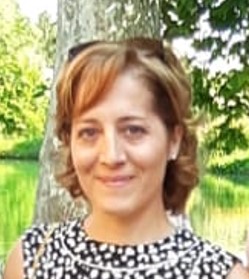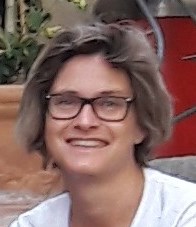Studying at the University of Verona
Here you can find information on the organisational aspects of the Programme, lecture timetables, learning activities and useful contact details for your time at the University, from enrolment to graduation.
Academic calendar
The academic calendar shows the deadlines and scheduled events that are relevant to students, teaching and technical-administrative staff of the University. Public holidays and University closures are also indicated. The academic year normally begins on 1 October each year and ends on 30 September of the following year.
Course calendar
The Academic Calendar sets out the degree programme lecture and exam timetables, as well as the relevant university closure dates..
| Period | From | To |
|---|---|---|
| 1° e 2° semestre (corsi annuali) PROFESSIONI SANITARIE | Oct 3, 2022 | Sep 30, 2023 |
| 1 SEMESTRE PROFESSIONI SANITARIE | Oct 3, 2022 | Dec 23, 2022 |
| 2 SEMESTRE PROFESSIONI SANITARIE | Jan 9, 2023 | Sep 30, 2023 |
| Session | From | To |
|---|---|---|
| FISIO ROV SESSIONE INVERNALE - 3 ANNO | Jan 11, 2023 | Feb 10, 2023 |
| FISIO ROV SESSIONE INVERNALE - 1 ANNO | Jan 11, 2023 | Feb 3, 2023 |
| FISIO ROV SESSIONE INVERNALE - 2 ANNO | Feb 27, 2023 | Mar 17, 2023 |
| FISIO ROV SESSIONE ESTIVA - 2 ANNO | May 15, 2023 | Jun 16, 2023 |
| FISIO ROV SESSIONE ESTIVA - 1 ANNO | Jun 22, 2023 | Jul 28, 2023 |
| FISIO ROV SESSIONE ESTIVA - 3 ANNO | Jun 26, 2023 | Jul 28, 2023 |
| FISIO ROV SESSIONE AUTUNNALE | Sep 4, 2023 | Sep 29, 2023 |
| Session | From | To |
|---|---|---|
| FISIO SESSIONE PRIMAVERILE | Mar 1, 2021 | Apr 30, 2024 |
| FISIO SESSIONE AUTUNNALE | Oct 1, 2023 | Nov 30, 2023 |
| Period | From | To |
|---|---|---|
| Ponte Festa di tutti i Santi | Oct 31, 2022 | Nov 1, 2022 |
| Ponte dell'Immacolata Concezione | Dec 8, 2022 | Dec 9, 2022 |
| Vacanze di Natale | Dec 24, 2022 | Jan 1, 2023 |
| Vacanze di Pasqua | Apr 7, 2023 | Apr 10, 2023 |
| FESTA DELLA LIBERAZIONE | Apr 25, 2023 | Apr 25, 2023 |
| FESTA DEL LAVORO | May 1, 2023 | May 1, 2023 |
| FESTA DELLA REPUBBLICA | Jun 2, 2023 | Jun 2, 2023 |
| Chiusura estiva | Aug 14, 2023 | Aug 19, 2023 |
| Description | Period | From | To |
|---|---|---|---|
| TIR FISIO ROV 3 ANNO - 1 SEM 1 PERIODO | TIR FISIO ROV 3 ANNO - 1 SEM 1 PERIODO | Nov 16, 2022 | Dec 22, 2022 |
| TIR FISIO ROV 2 ANNO - 1 SEM | TIR FISIO ROV 2 ANNO - 1 SEM | Jan 9, 2023 | Feb 22, 2023 |
| TIR FISIO ROV 3 ANNO - 1 SEM 2 PERIODO | TIR FISIO ROV 3 ANNO - 1 SEM 2 PERIODO | Mar 13, 2023 | Apr 21, 2023 |
| TIR FISIO ROV 3 ANNO - 2 SEM | TIR FISIO ROV 3 ANNO - 2 SEM | May 2, 2023 | Jun 16, 2023 |
| TIR FISIO ROV 1 ANNO - 1 SEM | TIR FISIO ROV 1 ANNO - 1 SEM | May 8, 2023 | Jun 14, 2023 |
| TIR FISIO ROV 2 ANNO - 2 SEM | TIR FISIO ROV 2 ANNO - 2 SEM | Jun 19, 2023 | Aug 4, 2023 |
| TIR FISIO ROV 1 ANNO - 2 SEM | TIR FISIO ROV 1 ANNO - 2 SEM | Aug 28, 2023 | Sep 29, 2023 |
Exam calendar
Exam dates and rounds are managed by the relevant Medicine Teaching and Student Services Unit.
To view all the exam sessions available, please use the Exam dashboard on ESSE3.
If you forgot your login details or have problems logging in, please contact the relevant IT HelpDesk, or check the login details recovery web page.
Should you have any doubts or questions, please check the Enrollment FAQs
Academic staff
 daniela.pianezzi@univr.it
daniela.pianezzi@univr.it
Study Plan
The Study Plan includes all modules, teaching and learning activities that each student will need to undertake during their time at the University.
Please select your Study Plan based on your enrollment year.
1° Year
| Modules | Credits | TAF | SSD |
|---|
2° Year activated in the A.Y. 2023/2024
| Modules | Credits | TAF | SSD |
|---|
3° Year It will be activated in the A.Y. 2024/2025
| Modules | Credits | TAF | SSD |
|---|
| Modules | Credits | TAF | SSD |
|---|
| Modules | Credits | TAF | SSD |
|---|
| Modules | Credits | TAF | SSD |
|---|
Legend | Type of training activity (TTA)
TAF (Type of Educational Activity) All courses and activities are classified into different types of educational activities, indicated by a letter.
Professional Laboratories (3rd year) (2024/2025)
Teaching code
4S000205
Teacher
Not yet assigned
Credits
1
Language
Italian
Scientific Disciplinary Sector (SSD)
MED/48 - NURSING IN NEUROPSYCHIATRY AND REHABILITATION
Period
Not yet assigned
Courses Single
Authorized
Learning objectives
Acquire the ability to apply the knowledge learnt in frontal lessons in planning the physiotherapy process on real clinical cases on videotapes, paper, or simulated showing cases in which the patient is affected by visceral, cardio-respiratory, geriatric and pediatric pathologies. Develop clinical reasoning from data collection to the planning and implementation of physiotherapy intervention in complex clinical cases. Organize therapeutic exercises taking into account all aspects (communicative, educational and others). Set up the rehabilitation intervention considering all aspects in a "biopsychosocial" perspective.
Career prospects
Module/Programme news
News for students
There you will find information, resources and services useful during your time at the University (Student’s exam record, your study plan on ESSE3, Distance Learning courses, university email account, office forms, administrative procedures, etc.). You can log into MyUnivr with your GIA login details: only in this way will you be able to receive notification of all the notices from your teachers and your secretariat via email and soon also via the Univr app.
Graduation
Documents
| Title | Info File |
|---|---|
|
|
pdf, it, 367 KB, 19/02/24 |
|
|
pdf, it, 142 KB, 19/01/24 |
|
|
pdf, it, 862 KB, 19/01/24 |
|
|
pdf, it, 273 KB, 25/03/24 |
Gestione carriere
Orario lezioni
Documents
| Title | Info File |
|---|---|
|
|
pdf, it, 525 KB, 22/09/23 |
|
|
pdf, it, 39 KB, 17/04/24 |
|
|
pdf, it, 33 KB, 17/04/24 |
|
|
pdf, it, 1453 KB, 07/02/24 |
Student login and resources
Attività Seminariali/a scelta dello studente
Attività Seminariali/a scelta dello studente

 +39 0458027268
+39 0458027268

















